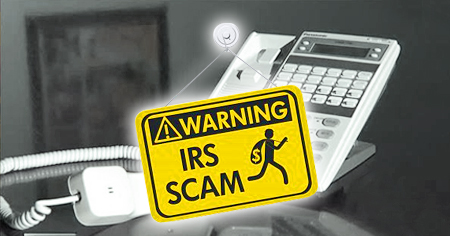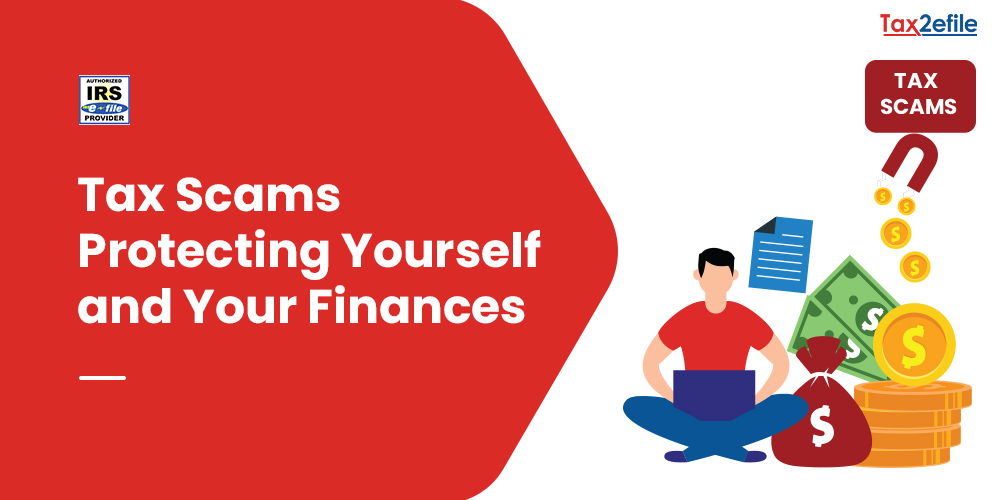- April 27, 2020

In recent years, we hear lots of people lost millions of dollars and their personal information to the tax scammers. The tax scammers mostly make use of the telephone, email, mail or fax to net their victims. So to stay away from these scams which are affecting individuals, tax professionals, and businesses, you must be aware what is happening around. And also check what to do if you spot a tax scam.
Getting phone calls from aggressive callers impersonating immigration or IRS agents and informs you that you have unpaid taxes, so soon you will be arrested if you do not pay the tax.The Treasury Inspector General for Tax Administration J. Russell George says “Be wary of any unsolicited call from individual claiming to be IRS and Treasury employees”
In such situation, do not panic they may be robocalls. If your alarm and show it up in your voice then the tax scammer takes advantage of it. Then you are in their circle and they drive you accordingly.
Tax Scammers Target Taxpayers at Season
Telephone Scams
Telephone scams are prevailing more nowadays and the scammers believe this as their most effective strategy. They target the taxpayers and recent immigrants throughout the country. The callers claim to be the employees of IRS uses fake names and forged identification badge numbers. Even they alter the caller ID to showcase that IRS is calling.
The callers are aggressive and their voices are high to threaten the victim. They inform that the victim owes money to the IRS. And also they insist to pay the tax immediately through wire transfer or debit card. They will be threatened with arrest, deport or even suspension of a license. When the call is left unanswered, the scammers may leave an urgent call back request.
All the taxpayers must be aware of the few facts. That the
- IRS will never call and demand instant payment through wire transfer, debit card or gift card.
- In general, initially, IRS will send you a bill stating the amount you owe.
- The IRS never threatens to bring local police immediately to arrest you for not paying the tax on time.
- IRS does not demand you to pay the taxes without giving you the opportunity to question the caller regarding the payment amount.
- IRS never asks for debit or credit card numbers through the call.
Phishing and other Malware Schemes
When the identity theft is done through the web then it is called as phishing. In the previous tax year, IRS evidenced about 400 percent surge in phishing and malware incidents. Even though the IRS has issued alert about the duplicitous use of IRS name, logo or website by the scammers who tries to access the customer personal and financial information. They also try to steal their identity and asset.
The emails that are sent by the scammers are well designed and formatted to showcase as if they are real. The victim taxpayers might believe that the email is official from the IRS or from the tax industry. The mail may seek your information that is related to tax refunds, confirms your personal information, your tax filing status and also verifies your PIN information.
The scammers include links to their bogus website in the email sent. They may seem to be real IRS website and it directs to pay the tax amount. They may also carry malware that can infect your computer systems or laptops. Those malware provides access to your file or tracks your keystrokes to gain the user information
Tax Payer Advocacy Panel
The taxpayers also receive emails that seem to come from the Tax Payer Advocacy Panel (TAP) about your tax refund. These unsolicited emails trick the victim taxpayers to provide personal and financial information. In such case, do not respond or click the link in the email. If you have received such emails, forward them to the concern phishing@irs.gov and specify that it as a scam email.
In general, Taxpayer Advocacy Panel (TAP), is a volunteer board that assists and advises IRS on the issues that affect the taxpayers. Note that TAP does not have access to the taxpayer’s personal and financial information.
How to act for the Tax Scam?
- The first thing is, do not panic. A scam email, mail or call cannot hurt you and believe that it can be solved.
- If you receive a call and believe it to be a scam call, then hang up immediately. Do not drag the conversation. Remember IRS never makes a call and demand to pay you the tax amount.
- When you get a phishing mail, do not reply back and do not click any of the links or attachments.
- Do not share your personal, tax, business and professional information through any unrecognized email ids or phone call.
- If you receive any such threatening calls or emails, report them immediately to the concerned department.
- If you became the victim and lost money, it is recommended to report them to the Justice Department too.
How to report tax-related scams, Identity Theft, and Fraud?
It is also our responsibility to report the scam calls, emails or emails to the concerned department. To report the tax-related illegal activities, explain the types of activity, and attach appropriate forms. You can report the instance of tax scams and other tax-related phishing attempts to the Treasury Inspector General for Tax administration or call at 800-366 -4484.

